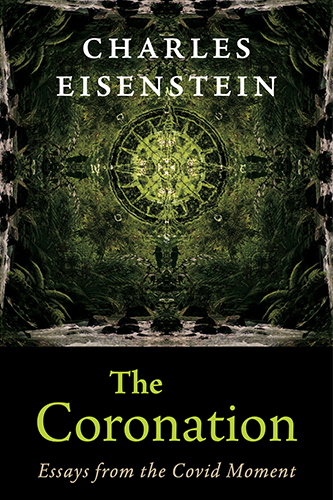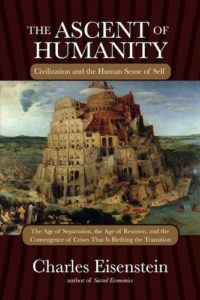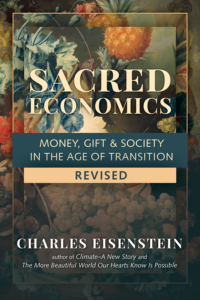Climate — A New Story
Chapters
Chapter 9: Energy, Population, and Development
Transition to Abundance
If compelled to take sides in the renewable energy debate after being made to feel stupid by both, I would side with the “optimists.” I think that photovoltaics in particular will grow much faster than most analysts predict, as the price of panels declines, as new storage technologies mature, and as their energy efficiency improves. Beyond that, I believe in the power of human will to bring vision into manifestation. Sustained commitment to a possibility converts it into an actuality. If humanity unites its creative powers to establish a renewable energy system, it will happen. There is currently an explosion of creativity in the field: biofuels from cyanobacteria, rail car energy storage, thermal batteries, biogas fermenters, multilayer PV, and so on.
A renewable energy future is in reach, but let us not invest it with utopian expectations. We could transition fully to renewable energy, only to discover that it wasn’t the solution to our problems after all. Switching fuels will not alter the deep preconditions for human misery and ecological devastation on this earth. So-called “green energy” can even exacerbate ecological disintegration, as the case of big hydroelectric dams and industrial biofuels illustrates. Unless we turn toward other dimensions of ecological healing—soil, water, biodiversity, etc.—the condition of the biosphere will continue to worsen. And unless we address the roots of social and psychological misery, sustainable energy will just sustain more misery.
The same admonishment applies to energy technologies that conventional opinion rejects as fanciful. Mainstream readers might be surprised to know that an entire subculture believes in so-called “free energy devices” or “over-unity devices,” which draw energy from sources unrecognized by conventional science. Many in this subculture are highly educated; certainly they are not ignorant of basic scientific principles such as the Second Law of Thermodynamics. Again though, the question of the authenticity of these devices is the wrong question. Free energy devices, if they exist, are not going to save us any more than photovoltaics (another free energy device) will, or any more than petroleum did. Abundance is a state of mind and a function of social relationships. Technology is but its tool. We could have abundance right now, with no new technology, if we rid ourselves of various systems of artificial scarcity, epitomized by the artificial scarcity of money.
I have detoured into this issue, no doubt at risk to my credibility, in order to illustrate an important point: the key issue is not energy. Energy technology will not be our deliverance. Those who decry free energy devices as an escapist fantasy that distracts us from the real issue are correct even if the devices are genuine. They do not yet fit into this world. If and when they do, it will be when we have ended the War on Nature and transcended our ambition to master the world by force; we will have them, in other words, when we no longer need them to address scarcity. Their purpose is not to sustain and intensify the present mode of civilization. We are left today with more modest technologies like wind and solar, whose limits invite us to rethink the growth paradigm.
The conventional mind conceives abundance as a function of quantity, but in practice abundance depends equally on distribution and therefore on relationship. This is obvious when it comes to money, at a time of hyper-abundance for a few and poverty for the many. Since the Great Recession, the economy and money supply have grown, but nearly all of that growth has gone to the top 1 percent. Greater quantity has not meant greater abundance; the flood of central bank money has not soaked into the humus of the real economy. Similarly, total annual rainfall has increased in many places that are experiencing desertification—again, because damaged soil repels the concentrated rains of a disturbed hydrological cycle. Food too exists in theoretical superabundance on earth, yet it is so unequally distributed that nearly half goes to waste while one in five children goes hungry. In view of all this, when we consider energy abundance perhaps we should orient toward distribution and scale rather than quantity and source.
Most environmental thinkers today conceive of our civilizational transition as being from fossil fuels to renewable energy. Another kind of transition would be from a centralized system to a distributed system. Many renewable energy sources are well suited to a decentralized system. We can have rooftop solar and neighborhood biogas fermenters; we can’t have rooftop coal-fired turbines or neighborhood nuclear power plants. In Africa, large regions are bypassing the construction of a power grid altogether in favor of rooftop solar.
Distributed energy is part of a larger trend of relocalization, which is necessary to bring us back into intimate relationship with the soil, water, biota, and culture of place. Like energy consumption, the trend of converting the world into standard units has nearly peaked. Whether in agriculture, economics, or technology, we need to embrace again the uniqueness of each place. That is what makes places come alive. Local, closed-loop systems must replace global mine-to-landfill systems. Certainly, some dimensions of human culture will continue to be global, just as some planetary systems are, but generally speaking, healing means the renewal of lost circles of life.
What humanity creates depends on the vision that inspires us and on the story that imbues action with meaning. To debate the viability of various alternative energy strategies focuses the conversation on too narrow a realm and draws from too limiting a story. The energy crisis, like the ecological crisis to which it is related, is occasion to move us from domination to participation. Energy then becomes a question of relationship not quantity.
Like all living beings, we will always expend energy to alter the environment, but in an age of partnership with nature, the notion that human progress depends on more and more energy is obsolete. How we obtain energy and how we choose to use it will both be part of a larger choice: What kind of world shall we live in?






